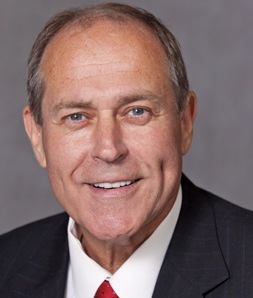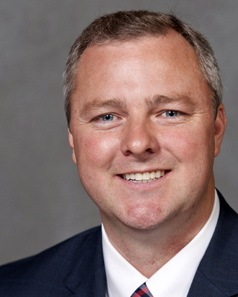Former Democrats Rye, Wagner seek GOP nod in District 54 Arkansas House race
by February 17, 2016 11:52 am 277 views

Poinsett County Assessor Johnny Rye of Trumann and former State Rep. Wes Wagner of Manila are running in the March 1 primary for the Arkansas House District 54 seat, with the winner facing Democrat Hunter Williams of Blytheville Nov. 8.
The two former Democrats are touting their experience to win in a district that includes Mississippi and Poinsett counties, ranging from Armorel, Gosnell and parts of Blytheville in the north to Trumann, Lepanto and Rivervale in the south.
The incumbent, Rep. Dave Wallace, R-Leachville, is seeking the state Senate seat held by Sen. David Burnett, D-Osceola.
Talk Business & Politics recently asked Rye and Wagner to answer questions about themselves and the District 54 race.
BACKGROUND
• Poinsett County Assessor Johnny Rye
Graduated from Marked Tree High School in 1974
Completed all examinations for certifications for International Association of Assessment Officers, Arkansas Senior Appraiser Designation in the State of Arkansas.
Worked in general retail and management (1976-90).
Assessor of Poinsett County, 1990-present
Elected President of the Arkansas Assessor’s Association in 1999-2000
Elected in 2002-2012 years as a Representative to the Association of Arkansas Counties Board (Elected as Secretary/Treasurer 2007-10)
Elected in 2002-12 years as a Representative of the Association of Arkansas Counties Legislative Committee (channeling approximately 400 pieces of legislation, bi-yearly.)
• State Rep. Wes Wagner, R-Manila
Married to Katy Massey Wagner of Jonesboro, 5 year old daughter Scarlett and 1 year old son Warren
1997 Manila High school honor graduate
Graduated Arkansas State University with a bachelor’s degree in finance (2001)
Graduated from the University of Tulsa College of Law (2005)
General legal practice for 10 years in Manila Arkansas, small business owner also with residential, commercial, and agriculture rental property.
CANDIDATE QUESTIONS
TB&P: You and your opponent are former Democrats and switched parties last year, citing a frustration with the Democratic party. Briefly explain your decision to switch parties and what made the decision for you.

Rye: This is a decision that has been evolving for the past eight years. The Democratic Party has become much more liberal in the past twenty-five years. The decision by the party to be in agreement with the same sex marriage decision from the Federal Supreme Court, along with a weak stance on Pro Life also had a big bearing on my decision. I did not agree with the party with the governmental funding for Planned Parenthood.
Wagner: My decision to change political parties is no different from the majority of people in my part of the state, most grew up as Democrats but now we identify and relate more with the Republican point of views. There is no doubt that Pres. Obama has spearheaded the movement of the Democrats further to the left. It’s an ongoing and evolving situation and I feel personally the Republican Party is where I belong.
TB&P: One of the major issues facing the legislature in 2017 will be the state’s budget. What is your philosophy on dealing with budget issues, especially in dealing with education and highways?
Rye: I feel like we do need to adequately fund our K through 12 public school systems along with our Higher Education funding. I believe that we need to add even more funding to our local campuses, for schools, such as Arkansas Northeastern College, Arkansas State University/Marked Tree, Arkansas State University/ Newport and Arkansas State University/Trumann. These schools, until now, have been very instrumental for the citizens of Arkansas and Arkansas District 54 for job training. The schools could very well be the answer to proper technical training for economic development and also industrial development in our new job growth in District 54. Also, many students can begin their college careers by completing college courses and receiving college credit for these courses before attending a four year college to receive a bachelor’s degree. The cost per hour is much more affordable, to those that in many cases, would not be able to attend college.

Wagner: The state of Arkansas is unique in that we have the revenue stabilization act which requires us to balance the budget. The state is also under a Court order to fund education equally for each student across the state, so off the top all levels of Education requires around 60% of the entire budget, combine that with Healthcare that requires over 20%, we are left with approximately 20% or less of the state’s revenue to fund literally everything else including highways. As State Rep I will make sure we are getting the most bang for our buck in education, and that we can make cuts and use the savings for a revenue neutral highway funding plan such as the one the Governor has recommended.
TB&P: What is your opinion on general improvement funding? Supporters have said it has helped cities and counties with pressing needs while opponents have equated the practice with pork barrel spending. Would you support eliminating or reforming the practice?
Rye: I honestly feel like the local improvements that are made from the General Improvement Fund are a great help to our local cities and towns in receiving assistance for much needed projects, that in many cases, may not be able to be completed without the GIF funding and grants. This funding, through the years, has been cut. A good example are assisting local library systems and local fire departments. I would like to see this funding kept in place. I do believe as legislators, we do need to keep in check how the monies are being used, being taxpayer funded.
Wagner: The method of using general improvement funds needs to be reformed, this surplus money is vital for small rural communities to fund resources for the police and fire departments as well as city parks and senior centers, but the avenue to receive such funds needs to be changed to go through DF&A and possibly have a matching fund requirement.
TB&P: Speaking of highways, there has been a push in recent years to fund construction and repairs along Arkansas 18 and Arkansas 140, which runs through your district. Should the legislature ask for additional revenue, i.e. new taxes, or fund projects through existing revenue?
Rye: These highways are in much need of repair. They are also very important to all of northeast Arkansas, along with Highway 63, beginning in Jonesboro and extending to Turrell. All three of these highways are vital for interstate trade and our commuting work force. At this time, I feel like these three roads have been somewhat neglected, with proper funding, from our state. I would not vote for any tax increase for new funding, but, feel like all citizens of our state should be involved in this type tax increase, should this become an issue. I believe that this is a major issue. Once the legislature begins in 2017, there possibly will be an initiative concerning our road systems, that will come forth, as one of the three initiatives, that by law, the legislature can present during each General Session. Should this happen, the citizens in our state can be a part this process in the 2018 General Election Ballot. In my opinion, in this situation, I feel like, the will of the people is the answer. Basically, this same situation occurred in 2001. The legislature referred a constitutional amendment dealing with our road systems, to the people, for the General Election Ballot in 2002. The people of this state were well aware of the situation of the need and the public accepted that increase in gasoline and diesel by the vote at the ballot box. I will say that until that process and possible ballot takes place, that we need to work on the state budget, trim down any excess on our budget and earmark those excess funds for additional funding for our roads from existing revenue.
Wagner: I am proud and excited the four-lane Highway 18 project has finally been fully approved and fully funded. The money has been allocated for this project and it falls outside of any new funding methods that the current legislature is working on. I do not see the need to raise taxes to provide funds for additional highway projects. I helped get the bridges resurfaced on Highway 14/140 in Lepanto and the bridges on Hwy 77 south of Manila will be replaced in the near future all without raising taxes.
TB&P: Another major issue will likely be the reauthorization of the so-called “Private Option.” Would you support expanding Medicaid in the state or putting the program under the auspices of private insurance?
Rye: Until the 2017 year, the Private Option has been provided at no cost to the taxpayers of Arkansas. In 2017, our state will be responsible for paying 5% of that cost. That cost will increase until the year 2020. Even though there was no cost to the taxpayers of this state, our federal government continues to borrow money to keep projects, like the Private Option in place. I will say that this type funding is more cost efficient than the standard “3 to 1” federal matching for traditional Medicaid. The Governor, at this time, has a task force committee that is studying the Private Option. Once elected, I will listen to the task force committee and their recommendations. At that point, I will make a sound decision of what will be best for the citizens of Arkansas District 54 and the State of Arkansas.
Wagner: Medicaid as I mentioned before takes a huge chuck out of the state budget. The private option specifically has been more expensive than anybody anticipated but has also been more successful than anybody anticipated by providing insurance to over 200,000 Arkansas citizens that didn’t have any insurance before and has been a key factor in driving down the uncompensated care cost of rural hospitals, which is true in reference to the two facilities in Mississippi County. With that being said it has to be affordable for the state so some of Gov. Hutchinson’s ideas of attaching work requirements and some personal responsibility of the applicants to keep costs down should certainly be supported.
TB&P: Arkansas Northeastern College, which is located in your district, has worked for several years on the issue of workforce training in Northeast Arkansas. What do you see as the role of the state’s two year colleges and state government on working on the issue?
Rye: As stated before, I believe that if we are to continue the success that we have had, for education and job growth, we must expand the use and have proper funding for these colleges.
Wagner: I wish all levels of education would embrace technical training and work force training. I am certainly proud of the work Dr. (James) Shemwell at Arkansas Northeastern College in Mississippi County has been able to do by implementing the work force training programs, and all of the industry in our area certainly expresses the positive results they see in their employees who have completed such training.
